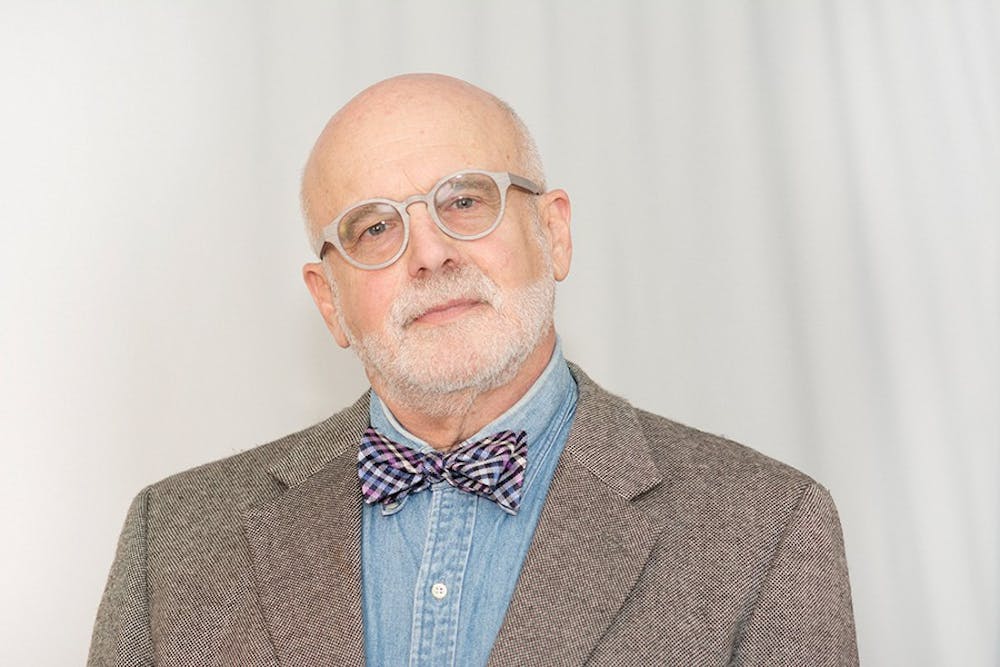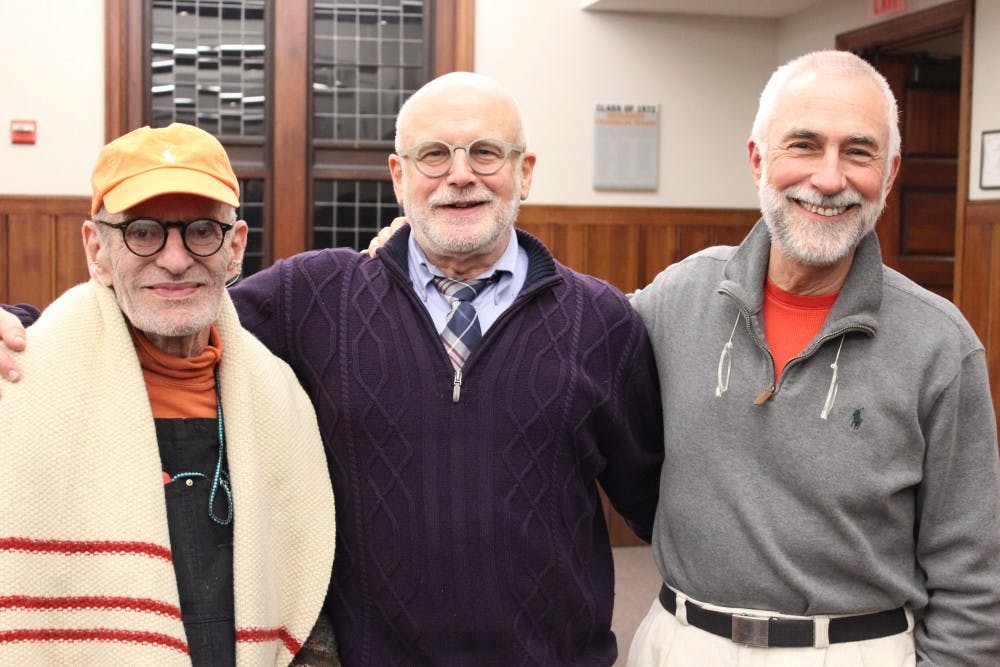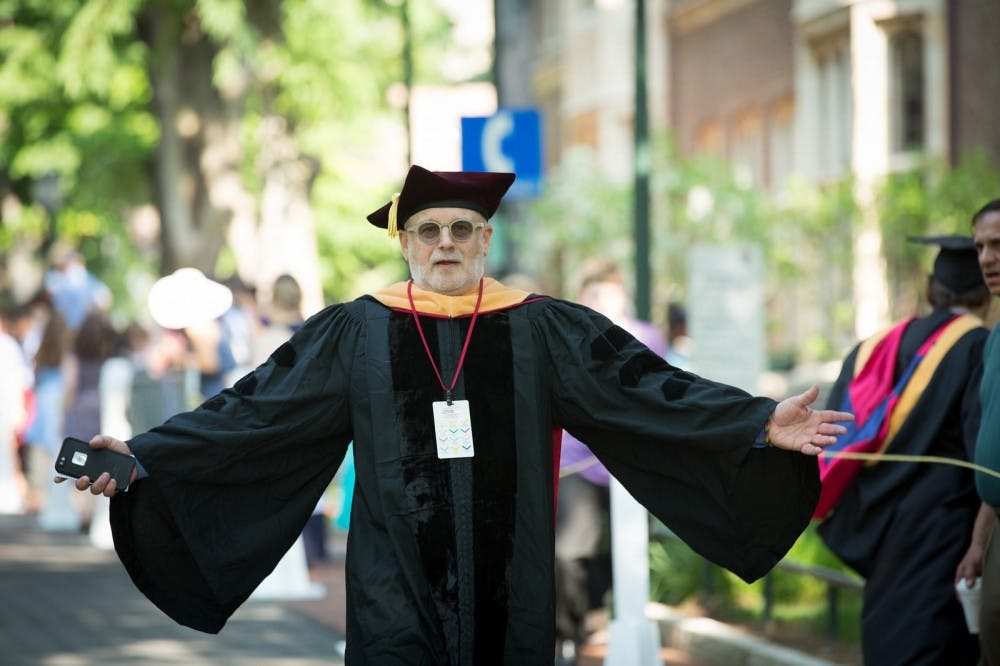
Penn is now one of the most LGBT-friendly campuses in the country, but this hasn't always been the case.
Campus Pride, the leading national educational organization for LGBTQ college students, recently ranked Penn in the top 25 most LGBT-friendly schools for the 10th year in a row. This is a stark improvement from the 1980s when LGBT students faced threats of violence on Penn's campus. Much of this progress can be traced back to longtime LGBT Center director Bob Schoenberg.
Schoenberg will resign from his position on Sept. 12 — a date that marks exactly 35 years since the center opened and he assumed the role of director.
In 1981, a Penn sophomore was severely beaten on Locust Walk by a fellow student who targeted him for being gay, Schoenberg said. This act of violence, along with several other homophobic incidents, served as the impetus to create the LGBT Center in 1982.
Schoenberg, who was then a doctoral student at what is now known as the School of Social Policy & Practice, was hired to spearhead the center's mission and to act as "a point person for lesbian and gay concerns," according to the LGBT Center website.
Schoenberg worked at the center three days a week while continuing his course. By the time he finished his dissertation, he was serving as the center's full-time director. This is a stark improvement from the 1980s when LGBT students faced threats of violence on Penn's campus. Much of this progress can be traced back to longtime LGBT Center director Bob Schoenberg.

“The mission has always been continuous,” Schoenberg said. “We do education and training, as well as community advocacy. And in those regards, we’ve been pretty successful.”
Since his hiring, Schoenberg has worked with three different University presidents and moved from a small office in Houston Hall, to the third floor of the 3537 Locust Walk offices, and finally to the historic Carriage House, which has housed the LGBT Center since 2002.
Soon after Schoenberg started, 1983 College graduate Susan Miller, now an associate professor at Rutgers University-Camden, joined him as the Center's first work-study student.
“In the early '80s, not that many people were [openly gay], and the campus was not an open place,” Miller said. “Beyond the programming, it was just important that Bob was there. What Bob did so well was he created a space where students could act for themselves.”
In the 1980s, Lesbians & Gays at Penn was the only student-run organization of its kind on campus. Miller said its members really benefited from the guidance Schoenberg was able to offer in his new position.
“Students kind of ran the direction, so what people were interested in, he was willing to support and promote,” Miller added.
2007 College graduate Lex Ruby-Howe worked closely with the LGBT Center and helped form the Lambda Alliance, the coalition for LGBTQ groups on campus, where she served as political chair.
With the aid of Schoenberg's network of LGBT activists and Penn administrators, Ruby-Howe and other Penn students brought many visions into fruition, including blood donation programs, the gender-neutral bathrooms and admissions tours specifically for LGBTQ students.

Senior associate director Erin Cross, who is slated to replace Schoenberg as director come Sept. 12, joined the Center in 1998 and has worked closely with Schoenberg as the second full-time employee at the Center.
According to Cross, Penn granted domestic partner benefits to employees in 1994 after Schoenberg made major pushes with the help of professors. Penn took a step further and “grossed up” salaries of gay and lesbian employees in 2012, since before marriage equality domestic partner benefits were taxed.
Under Schoenberg’s leadership, Penn also expanded insurance coverage for transgender and gender nonconforming students in 2010 and then for faculty and staff in 2012 to include services such as transition surgeries or hormone injections.
“Doing that advocacy in a way that wasn’t threatening but was really powerful and successful has been amazing to watch," Cross said.
Director of Career Services Patricia Rose, a previous board member of the LGBT Center board, worked together with Schoenberg on initiatives such as LGBTQ training for Career Services employees.
Rose lauded Schoenberg’s dedication to providing LGBTQ faculty and staff with resources as well as students, saying he was “very well networked with LGBT activists in other arenas.”
“Penn was a leader in higher education," Rose said, "but Bob was a leader in LGBT advocacy."
On Oct. 14, there will a rededication of the LGBT Center in honor of Schoenberg’s legacy at Penn. A future fund for the LGBT Center archives will be established in honor of Schoenberg.
“Bob is an institution at Penn,” Ruby-Howe said. “I was happy to be one of the voices that worked alongside him. With him, the answer was always yes, instead of no.”
The Daily Pennsylvanian is an independent, student-run newspaper. Please consider making a donation to support the coverage that shapes the University. Your generosity ensures a future of strong journalism at Penn.
Donate



